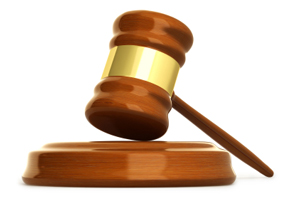
U.S. District Judge Gregory Sleet chided Medtronic (NYSE:MDT) this week after issuing a preliminary ban on the medtech titan’s CoreValve transcatheter aortic valve implantation system.
Judge Sleet wrote that Medtronic willfully sidestepped the law in bringing the device to market. He ruled late last week in favor of Edwards Lifesciences (NYSE:EW), granting an injunction to limit Medtronic from selling the devices in the U.S.
The ruling was a major victory for Edwards, coming after some 6 years of legal sparring, but it’s certainly not the end of the battle. Medtronic’s lawyers convinced Judge Sleet to grant a 7-day stay on the injunction as the company promptly pursues an appeal.
Edwards initially filed the infringement claim in 2008 against CoreValve, then an independent entity. Medtronic acquired the company in 2009 and a federal jury ruled in 2010 that the CoreValve device willfully infringed on Edwards’ "Andersen" (‘552) patent.
"Despite the April 2010 verdict in which the jury found that Medtronic was a literal and willful infringer of the ‘552 patent, Medtronic has continued to make the CoreValve Generation 3," Judge Sleet wrote in his opinion. "There is evidence that Medtronic may have sought to stockpile infringing devices in the United States after the verdict as part of a greater plan to overtake Edwards in the [transcatheter heart valve] market."
Judge Sleet further scolded Medtronic for its disregard of the law, saying that patent rights are vital to the public’s interest.
"Medtronic disregarded the law in infringing Edwards’ patent and boldly continued to thumb its nose at the law by continuing its conduct even after being found to be a willful infringer," he wrote. "The court cannot ignore the fact that it would serve as a reward of sorts to Medtronic and an incentive for onlookers to behave as Medtronic has should the court permit Medtronic to freely commence sales of its device."
Judge Sleet ceded, however, that the CoreValve may be a better fit for certain patients, siding with experts who warned during the trial that taking the infringing devices off the market entirely could put patients and doctors in a tough position. He ruled that CoreValve must remain available to patients who aren’t candidates for Edwards’ rival Sapien device, a decision that Edwards says it supports.
"In spite of the violations of our intellectual property, we are not seeking a total ban on CoreValve sales, because we understand the implications that could have for patients and physicians," Edwards chairman & CEO Michael Mussallem wrote in a letter to the company’s partners and customers. "In fact, we put forward multiple offers, in court and directly to Medtronic, that would allow patients to continue to be treated with CoreValve. But, unfortunately, they have refused these offers."
"We encourage Medtronic to accept our standing offer to enable use of CoreValve at U.S. hospitals where it is commercially available today," the company added.

